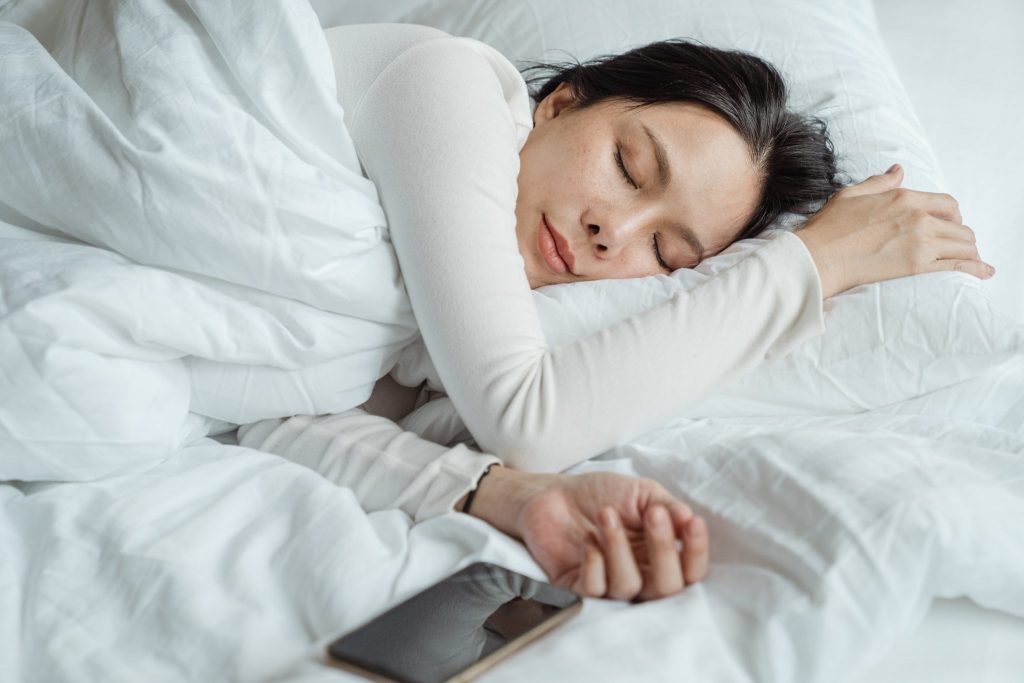
Insomnia has become one of the modern diseases, which, although ignored by many, is associated with the appearance of other physical and emotional disorders. Fortunately, there are effective habits against insomnia. It occurs when a person has trouble sleeping or when does not sleep at night for a long time.
Because the body is unable to perform its functions optimally during rest, this leads to certain reactions that gradually reduce the quality of life.
Most worrying, many people ignore the negative consequences of this and do not take steps to control insomnia until they have significant consequences.
Although many cases are mild and sporadic, it is important to look at this problem to get rid of it.
Fortunately, you can overcome insomnia naturally, because certain daily habits against insomnia can positively affect the quality of your sleep.
1. Light dinner
- A light dinner 1-2 hours before bed is important to prevent sleep breaks during the night.
- Skipping this meal can cause digestive problems and hunger, which affects sleep.
- On the other hand, eating a very heavy meal causes heartburn and acid reflux, which also prevents good sleep.
2. Avoid caffeine or stimulants
Energy drinks and coffee contain caffeine and other chemical ingredients that can cause difficulty sleeping.
- These substances support the activity of the brain and thus prevent the action of neurotransmitters that give us rest.
- It is necessary to limit the consumption of these substances as much as possible, especially in the evening.
- Instead, it is better to drink natural juices, herbal infusions, or hot milk.
3. Follow a regular schedule
- Anti-insomnia habits include a fixed sleep schedule that can help combat insomnia, especially when it is recurrent.
- So the body will be able to maintain a circadian rhythm, so we will feel the desire to sleep at the same time every day.
- Your schedule should allow you to get enough sleep (at least 7 hours without breaks). This also avoids sudden changes on holidays or weekends.
4. Do regular exercise
Regular exercise helps us maintain the proper production of serotonin, a neurotransmitter that affects sleep quality. It also helps relieve stress and depression, making it ideal for fighting insomnia.
- We recommend devoting at least 30 minutes a day to training 3-4 days a week.
- You can go for walks or do any cardio exercises.
- Also, it is useful to conduct intensive training.
5. Create a suitable sleeping environment
The environment in which we sleep is closely related to the quality of sleep. Although we are used to doing a lot of things in our room, it is worth leaving this space exclusively for sleeping.
- That is, if you are used to working or doing other things in this room, it is better to look for other alternatives.
- Computers, TVs, and other things that distract us should be in other parts of the house.
- It is important to check the conditions, making sure that the temperature is constant, and the place itself is quiet and dark.
- It is also important to make sure that the bed is clean and comfortable.
6. Meditation
Bedtime meditation is a reflexive practice that, like controlling anxiety and stress, also helps to achieve better sleep quality.
- This therapy is especially useful when insomnia is associated with emotional or nervous disorders.
- To practice meditation, it is important to find a calm environment away from potential distractions.
- It goes perfectly with breathing exercises to bring more benefits.
7. Drink herbal infusions
There is a great variety of herbal plants, which due to their properties help to relax the body and mind to ensure deep, restorative sleep.
An infusion can be prepared from these plants as an alternative to some anti-insomnia medications:
- valerian
- chamomile
- linden flowers
- melissa
- mint
- lavender
Picture Credit: Pexels
